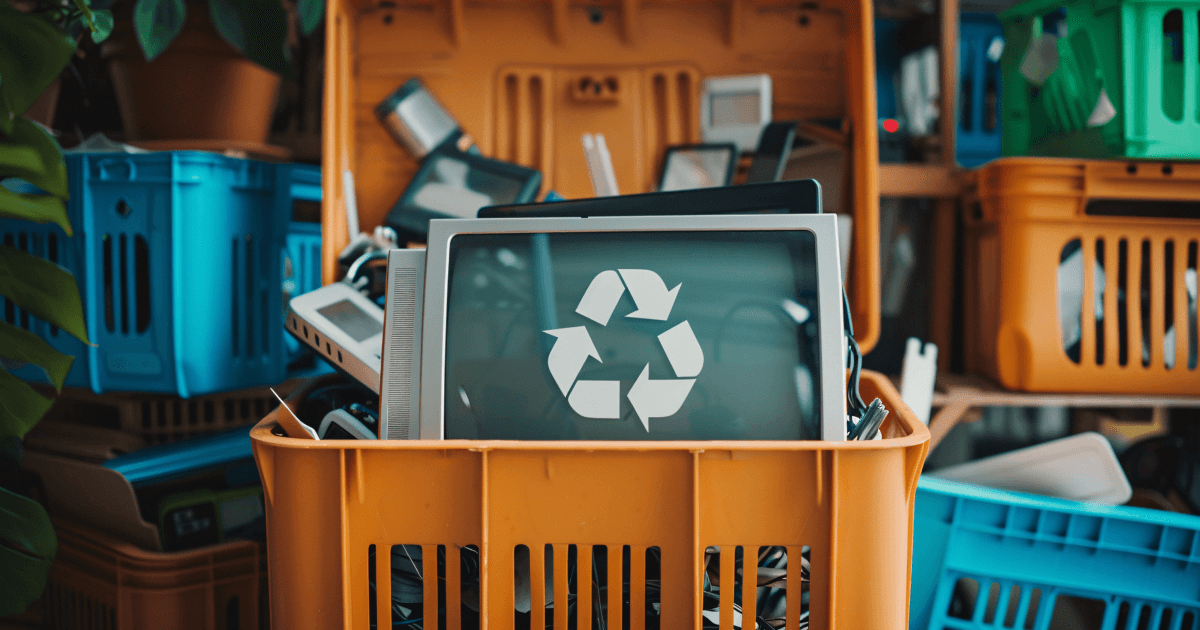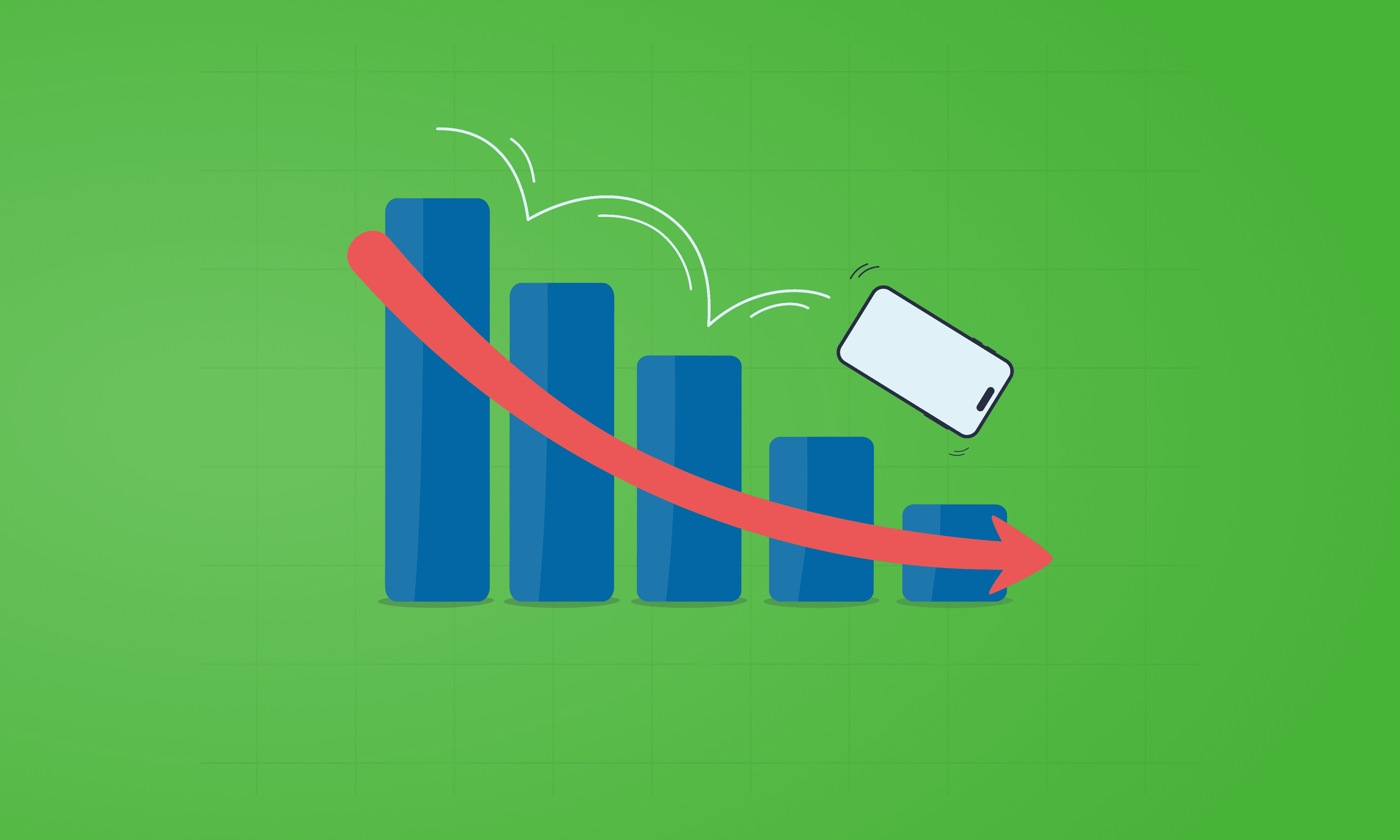E-waste is often misunderstood. Learn the key facts and how small actions can help reduce your environmental impact.

Written by Yasmin Maagbe, Content and PR Executive | Environment and Consumer Electronics
Last updated on 17 December 2025

E-Waste is an issue that will not be disappearing any time soon and it seems to be a topic that is often overlooked. There are so many misconceptions about it, from people thinking that it’s an issue well beyond their control, to believing the sole responsibility should be taken on by major tech companies. In this blog we share some mind blowing facts about e-waste that you may not have discovered yet and also cover the basics of what is actually meant by the term e-waste. E-Waste is a term used to describe discarded electronic items. These items include mobile phones, laptops, TV’s and even a microwave. In short, anything that you can plug in can be regarded as e-waste when it gets to its end-of-life.
To start things off, we should take a look at the UK and see exactly what our contribution to e-waste entails. Did you know that the UK alone generates a whopping 6 million tonnes of e-waste each year? Yes, EACH YEAR! For such a small island with so many resources, this figure is pretty shocking and quite simply, disappointing. If you’ve read our Ultimate Guide To Recycling Electronics, then you’ll know just how many avenues you can take to recycle the electronics you no longer use. So, there’s really no excuse, whether they are still functional or have made it to end-of-life, there are an abundance of ways you can responsibly recycle your electronic gadgets.
Digging a bit deeper into this issue, it’s clear that popular items such as disposable vapes have become a major contributing factor to e-waste in the UK. The good news is that these have since been banned by the UK government which is a fantastic step in the right direction, but this does not erase the damage already caused.
Here are a few ways disposable vapes contributed to e-waste:
Made from hazardous chemicals which negatively affect the environment
The amount of disposable vapes discarded each year could fill 22 football pitches
Similar to some mobile phone designs, disposable vapes are so poorly designed that even recyclable components cannot be recycled
Disposable vapes contain lithium batteries which can set fire when disposed off in household bins
If disposable vapes were made rechargeable from the start, they could have been re-used at least 300 times more!
If you think the UK is bad, think again. China is the world’s worst offender for e-waste production.
For some, it may come as no surprise that China has been crowned as the worst producers of e-waste mainly due to it being a major manufacturing hub for so many large companies. So let’s look at the numbers. China generated more than 12 million metric tonnes of e-waste in 2022, which is the equivalent of around 285 Titanic ships! If you let that sink in then you will realise just how large a number this is for one country to produce independently.
You’re probably wondering what a ‘Tech Squireler’ is. A Tech Squirreler is someone who hoards their mobile phone phones and electronic devices, despite already moving onto a new device, and the UK is full of them! One of our recent studies, conducted with the help of YouGov, discovered that 26.8 million people in the UK failed to responsibly recycle their tech despite multiple monetary incentives available nationwide. So where are we going wrong? It’s clear that the staggering £17.5 billion lost in the last decade in potential earnings can’t be ignored, so we explored further and found that 31% opt to hand down their devices to family and friends. There’s nothing wrong with doing this if you know for certain that your old device will be used and put to good use; however, if it remains unused by the receiver, then it will likely become a product of e-waste pretty soon. In this case, we advise that you either trade-in your old device, take it to your local recycling centre or donate it to charity. This way, you can have peace of mind that you have done your part in responsibly disposing of your electronic devices knowing that you have minimised your impact of e-waste.
In 2015, Unknown Fields captured an image of the nightmare landscape in Baotou, the largest industrial city in Mongolia. The artificial lake is seen to be filled with thick, black, toxic sludge as a result of the constant production of electronic goods and the extraction of rare earth materials. The mines and factories located in this area are the world’s biggest suppliers of rare earth minerals and the very thing that keeps our modern technology running. However, this task is extremely hazardous and ultimately a toxic process. Cerium is needed for the production of our mobile phones and is extracted by crushing other minerals as well as dissolving them in sulphuric and nitric acid. So, imagine this being carried out on an industrial scale and all the poisonous waste produced as a result? Well this is exactly what you are seeing in the image we included below.
Picture this, it’s 2010 you’ve gone through around 3 blackberry phones this year and are deciding whether you want to buy the latest iPhone 4 or the Samsung Tocco Lite. You’ve got your iPod Nano lying around somewhere but you use your iPod Touch now as it’s miles ahead in terms of tech.
Fast forward to the present day, you come across our blog page and learn everything you need to know about e-waste and how to correctly recycle your old tech. Then the nostalgia hits when you find all your old gadgets tucked away in a drawer collecting dust and you think about how many more people are guilty of doing the same with their unused devices. So, when you think about it like this, you can probably see how e-waste production figures reached 62 million metric tonnes in 2022 (up 82% since 2010). Technology has developed so quickly that we’ve been caught up in the dangerous cycle of constantly wanting the latest tech. Companies like Apple and Samsung do not help this issue because they release new mobile phones every year despite knowing that their devices can comfortably last up to 5 years.
Our mobile phones and other electronic devices all contain valuable materials ranging from gold, silver and rare earth minerals, which is one of the reasons why it’s important to recycle them responsibly. Not only this but you can sell your phone for refurbishment so that another person can enjoy it. Our mobile phones in particular can last quite a while and it’s no longer necessary to frequently replace them but if you do, just don’t bin it. In 2022 only 22.3% of the e-waste produced worldwide, was documented as collected and properly recycled. The fact that there is an estimated 347 million metric tonnes of unrecycled e-waste on Earth goes to show just how miniscule that 22.3% is…
So what part do we play in this? How we treat our electronic devices when they’re no longer of use to us is crucial because we decide whether or not our gadgets end up in landfill. Here are a few ways we can ensure we do not contribute to the growing issue and ultimately create better tech habits:
Reduce the amount of electronics you buy and if you do want a new phone, tablet or laptop, buy a refurbished one!
Try to repair your phone, it’ll cost much less than getting a brand new one
If you are thinking about buying a new phone, trade in your old one or take it to your local recycling centre
Find out more about how you can reduce your e-waste here.
Not only do these options mean that you can earn money from responsibly recycling your electronics, but it also means you are doing your bit in preventing e-waste pollution and decline of rare earth materials. There is a lot at stake so learning how to reduce your impact around the topic of electronic recycling is a crucial knowledge we should all share and pass on.
By following these suggestions, it will ensure the gradual minimisation of e-waste and the negative impact it is having on the environment. By sharing these tips with friends and family, you’ll be spreading awareness on just how easy it is to dispose of old electronics.

Digicam trend drives 979% spike in iPhone 4 demand and here's what you need to know before using one.

The iPhone used to define innovation. Now every new model feels the same. Is Apple’s story running out of pages?

See which Apple, Samsung and Google phones hold their value best over the first and second year on the market.